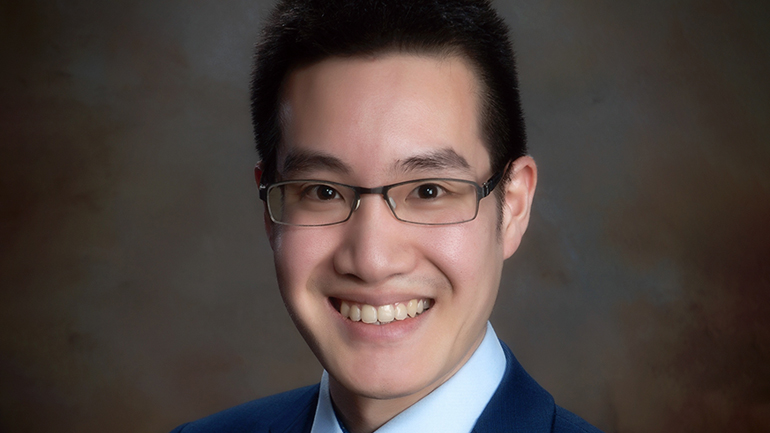
Dr. Jason Chan, neurologist has received the 2025 Michael Smith Health Research BC Health Professional-Investigator Award for his research into Parkinson’s disease.
“To receive an award of this magnitude early in my career allows me to establish and develop a sustainable research program,” says Dr. Chan. “It’s also an opportunity to show that high-quality research can happen here in Surrey and the Lower Mainland.”
The five year, $90,000-per-year award supports health professionals like Dr. Chan who provide patient care while leading innovative research. It aims to bridge the gap between scientific discovery and real-world practice.
The research focuses on Parkinson’s disease, a neurological disorder where the brain stops producing enough dopamine, leading to slowed movement, stiffness and tremor. It can also affect memory, mood, sleep and other bodily functions.
Dr. Chan’s team will study how the brain responds when Parkinson’s patients take their dopamine replacement medications. Using advanced brain scans, they will observe brain activity in real time and measure changes in movement and cognition. The goal is to distinguish the medication’s beneficial effects from its side effects and understand why patients respond differently.
Two specialized brain imaging tools, both located at the Simon Fraser University ImageTech Lab at Surrey Memorial Hospital, will be used together. Magnetoencephalography (MEG) is the only machine of its kind in western Canada and captures brain activity with millisecond precision. Magnetic resonance imaging (MRI) provides detailed structural images. Combining both allows researchers to see when and where changes occur after patients take medication.
Dr. Chan is collaborating with scientists at the Simon Fraser University Institute for Neuroscience and Neurotechnology and the Parkinson Society British Columbia, which co-funded the award.
Findings will be shared through journals, conferences and local community events so patients and families can learn how the results may improve care.
“Ultimately, if we can predict how a patient’s brain responds to medication, we can use this information to fine-tune treatment,” says Dr. Chan. “That means improving quality of life for people living with Parkinson’s disease.”
